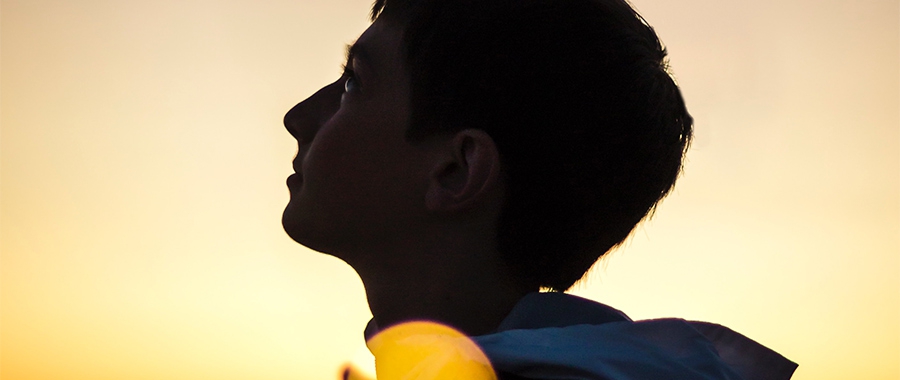The views expressed in our content reflect individual perspectives and do not represent the authoritative views of the Baha'i Faith.
During the 1960s, the western world, and by extension the world as a whole, began exploring new modes of thinking, abandoning the old traditions in favor of a spiritual search.
Many youth in the U.S., for instance, searched for ways to abandon the rigid, conservative Christian denominations of their parents and grandparents in search of a newer and more inclusive belief system and lifestyle. Many young people delved into Eastern religions, including the Buddhist and Hindu faiths.
Similarly, in the Middle East today, the younger generation searches for renewal in culture, traditions, and beliefs. The Arab Spring revolutions demonstrated that desire for change. Like the West, the Middle East is experiencing a shift into secularism and away from tradition. As an Egyptian living in Jordan, I’ve witnessed this shift first-hand.
Both the West and East have grown tired of the outmoded traditions and beliefs—primarily due to their rigid, black-white, coercive mentalities. Therefore, many have come to think of spirituality as a more loose, unstructured, unorthodox and pacifistic way of being and believing.
However, like religion, spirituality as a terminology carries its own connotations—and a lot of baggage of preconceived notions. So, rather than abolishing the term, let’s see if we can elevate our understanding of spirituality, and eliminate some of the misconceptions that go along with it simultaneously.
Viewing spirituality and religion in isolation is a serious dichotomy no different than dichotomizing theory from practice; science from religion; faith from reason; and the like. Instead of having a one-sided, unilateral perspective of spirituality we need to holistically understand it in its relation to religion.
The Baha’i teachings offer a unique definition of spirituality, comparing it to “a lake of clear water which reflects the divine”—but also saying that true spirituality results in action:
Know, O thou possessors of insight, that true spirituality is like unto a lake of clear water which reflects the divine. Of such was the spirituality of Jesus Christ. There is another kind which is like a mirage, seeming to be spiritual when it is not. That which is truly spiritual must light the path to God, and must result in deeds. We cannot believe the call to be spiritual when there is no result. Spirit is reality, and when the spirit in each of us seeks to join itself with the Great Reality, it must in turn give life. – Abdu’l-Baha, Abdu’l-Baha in London, p. 107.
Baha’u’llah, the prophet and founder of the Baha’i Faith, discouraged monasticism and the withdrawal from society, and instead encouraged all people to:
Give up the life of seclusion and direct their steps towards the open world and busy themselves with that which will profit themselves and others. – Baha’u’llah, The Most Holy Book, p. 195.
Also, the Baha’i Faith does not call for puritanism, asceticism or extreme detachment from human society:
The maintenance of such a high standard of moral conduct is not to be associated or confused with any form of asceticism, or of excessive and bigoted puritanism. The standard inculcated by Baha’u’llah seeks, under no circumstances, to deny anyone the legitimate right and privilege to derive the fullest advantage and benefit from the manifold joys, beauties, and pleasures with which the world has been so plentifully enriched by an All-Loving Creator. – Shoghi Effendi, The Advent of Divine Justice, p. 33.
The Baha’i teachings provide us with a redefinition and a tremendous paradigm shift as regards both religion and spirituality. Baha’u’llah actually correlates the terms and unifies them, establishing a balance between the two and avoiding the extremes as presented by contemporary society. In doing so, he wrote:
At one time We spoke in the language of the lawgiver; at another in that of the truth-seeker and the mystic. – Baha’u’llah, Epistle to the Son of the Wolf, p. 15.
In Baha’u’llah’s writings, he sometimes spoke as a lawgiver in a religious sense, laying out a fresh religious revelation and its new laws—such as the oneness of humanity, the elimination of all national, religious and racial prejudice, and a system of global governance.
At other times, he spoke in the language of the mystic, offering spiritual guidance to humanity—revealing prayers, meditations and spiritual insights that enlighten the soul. In one of those many passages, Baha’u’llah explained that God:
… hath ordained that in every age and dispensation a pure and stainless Soul be made manifest in the kingdoms of earth and heaven. Unto this subtle, this mysterious and ethereal Being He hath assigned a twofold nature; the physical, pertaining to the world of matter, and the spiritual, which is born of the substance of God Himself. – Baha’u’llah, Gleanings from the Writings of Baha’u’llah, p. 66.
Baha’is believe that Baha’u’llah is that pure and stainless soul—the most recent of the divine messengers sent to spiritually enlighten humanity. In that light, Baha’u’llah’s teachings marvelously and mysteriously blend spirituality within the fabric of religion:
Think not that We have revealed unto you a mere code of laws. Nay, rather, We have unsealed the choice Wine with the fingers of might and power. – Baha’u’llah, The Most Holy Book, p. 3.
Within this new system of spiritual mysticism, Baha’u’llah seamlessly and harmoniously intertwines the Baha’i teachings of spirituality and practical religion, uniting and reconciling the two aspects just as he unites all people; all nations; and all Faiths.
















Comments
Sign in or create an account
Continue with Googleor